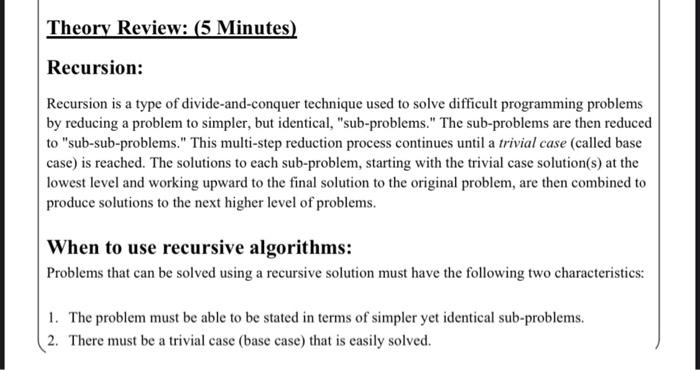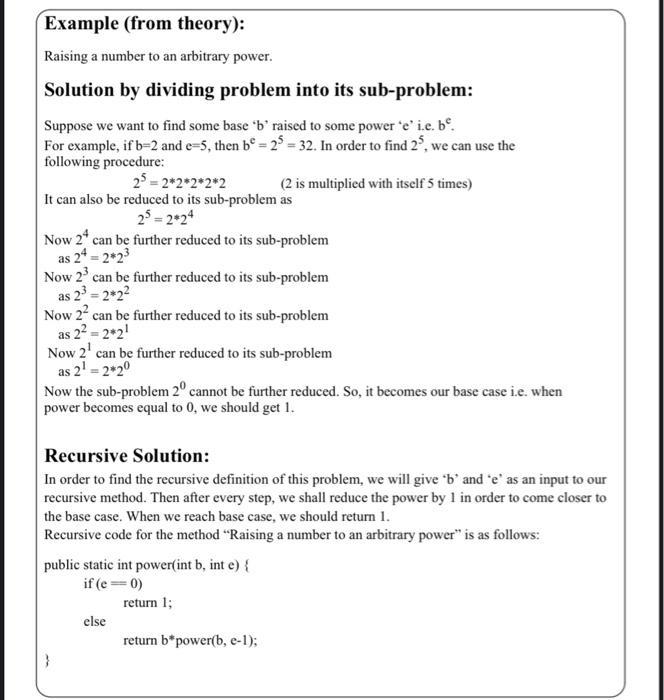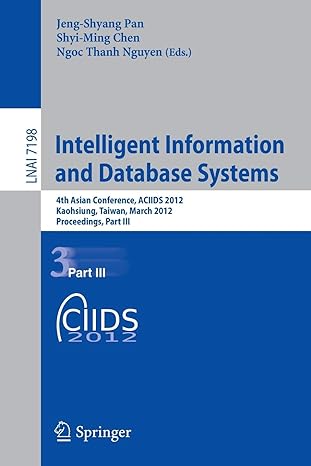Answered step by step
Verified Expert Solution
Question
1 Approved Answer
Theory Review: (5 Minutes) Recursion: Recursion is a type of divide-and-conquer technique used to solve difficult programming problems by reducing a problem to simpler, but


Step by Step Solution
There are 3 Steps involved in it
Step: 1

Get Instant Access to Expert-Tailored Solutions
See step-by-step solutions with expert insights and AI powered tools for academic success
Step: 2

Step: 3

Ace Your Homework with AI
Get the answers you need in no time with our AI-driven, step-by-step assistance
Get Started


